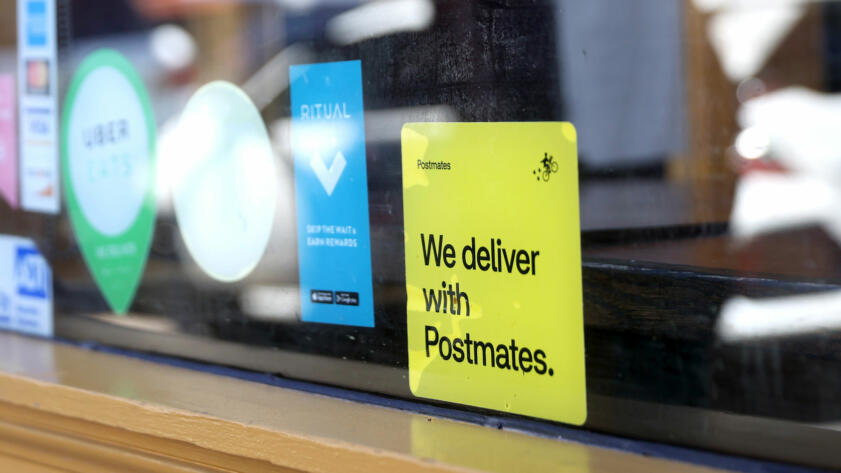Postmates courier Benjamin Safer was certain he’d never again see the $346.73 that had been stolen from him. He’d been tricked out of a week’s pay in a phishing scam in late March when a con artist persuaded him to hand over his Postmates login details and then emptied his account.
After several unsuccessful attempts to get reimbursed by Postmates—and nearly 11 months of waiting—the company sent Safer a credit for all of his lost earnings last Friday. The move came a day after his saga and those of other scammed Postmates workers were detailed by The Markup. The other couriers named in the piece also said they were contacted by Postmates, which is owned by Uber, after The Markup story.
“Your case was escalated to me to resolve,” Kara R., who identified herself as a Postmates payments support lead supervisor, wrote in an email to Safer, which he shared with The Markup. “Thank you for your patience as we have been working to resolve this issue for you. Today I am providing you a one-time credit for 100% of the number of earnings that you reported missing…. Please know that this is a one-time courtesy that will never be extended again in the future for this type of case.”
The scam, which appears to have targeted hundreds of Postmates couriers over the past year, highlights what can go wrong in an app-based workplace, where workers have little interaction with their company, management systems are automated, and the workforce changes frequently. Gig workers—such as Postmates couriers, Uber drivers, and Instacart shoppers—don’t have trainings, guidance, or colleagues to ask for help. They have an app that tells them where to go and are otherwise left on their own. Con artists have been taking advantage of this system to prey on unsuspecting workers.
While Postmates declined to say how many complaints it has gotten from couriers about the phishing scam, Reddit, Twitter, and YouTube are filled with hundreds of workers’ stories about drained accounts or near misses.
The scam involves the con artist putting in a Postmates order for the sole purpose of being able to talk to the driver on the phone. Those orders tend to be for small items from fast-food chains, like McDonald’s Chicken McNuggets or Jack in the Box value fries. The scammer pretends to be a Postmates employee calling about a problem with the order, often offering workers a cash credit or threatening them with deactivation as a way to get their login and password.
When it happened to Postmates courier Shaleece Green, she was told by the scammer that she’d get a $9 credit for a canceled order. After the scammer hung up on her upon discovering she only had a small amount in her account, Green called an actual Postmates representative and was told she wouldn’t get the $9 and that the company would never have asked for her account information.
On Friday, however, Kara R. emailed Green to let her know that “I have issued a payout in the amount of $9.00 to your account for a past Jack in the Box delivery.”
Meghan Casserly, head of delivery communications for Uber and Postmates, declined to comment on the emails and reimbursements. She’d previously told The Markup that “while incidents like these are not unique to Uber or Postmates, we take all reports of fraudulent activity very seriously.”
Postmates also instituted two-factor authentication within the past few weeks, making it harder for scammers to log in to couriers’ accounts and steal their pay.
Still, couriers and security experts say the company could do more in terms of protections.
None of the workers who spoke with The Markup knew about the scam before it happened to them. They said frequent warnings about con artists or a notice in the app would be helpful. Couriers also said creating a caller ID that labels customer calls as from “the customer” could help prevent fraud.
Bryce Doubravsky, another courier who spoke with The Markup, sent Postmates an email at the end of January suggesting that one easy fix for the scam would be to put a temporary hold on account transfers when banking information is changed. He didn’t hear back from Postmates until Friday.
“I do apologize for the delayed response,” Kara R. wrote to Doubravsky. “I will definitely give your feedback to the appropriate people, Bryce. Thank you for being a part of Postmates!”






